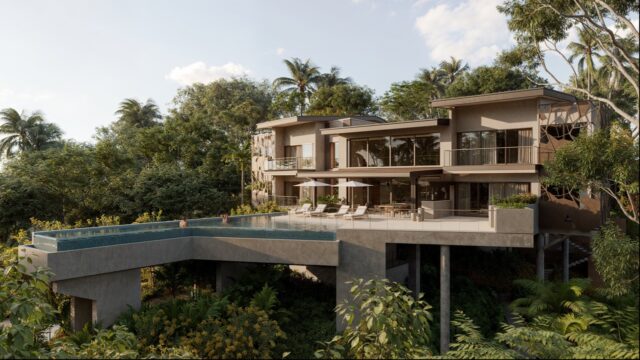
By Ray Rogers
On a visit to the W Costa Rica – Reserva Conchal late this spring, I found refuge from the daily onslaught of political unrest here in the States. A few days of unmitigated peace along white sand shores, set right within a protected nature reserve along the Guanacaste coast of the Nicoya peninsula—considered one of the world’s five original blue zones, where residents are said to live longer and healthier lives—was just the balm for my weary and worried mind. Forest bathing? Just walk out the door. Mindful moments? Gaze from your suite’s balcony out onto serene cerulean waters—or hit the Zen-like spa for a massage followed by a private sauna and steam. Flavorful farm-to-fork dining? Right down the path to the W’s three restaurants. Who would ever want to leave?
While here, news broke that three prominent professors were resigning from their posts at Yale University to head to the University of Toronto in Canada, where they felt they could freely engage with their work without political intimidation or restrictions. Even though I’m one to want to stay and resist fascism and fight the good fight within our borders, a light bulb went off when I saw this cheeky slogan emblazoned on a spare roll of toilet paper in my suite’s bathroom: “Backup Plan.” Hey, it doesn’t hurt to have an escape route in mind. Roughly 70,000 Americans already live in Costa Rica, according to the U.S. State Department. What’s one more?
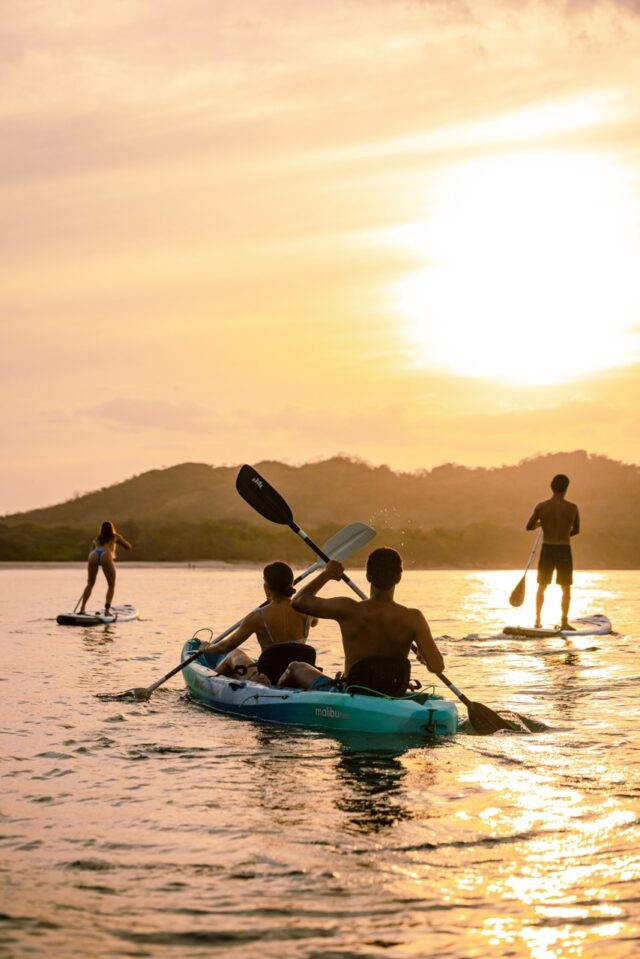
When thinking about a location that embodies my values, this one checks all the right boxes: environmentally conscious, uplifting local communities, a women’s collective running the on-premises vegetable gardens, and so forth. Not to mention the protected cove that’s perfect for long, shore-side swims, kayaking and stand-up paddleboarding.
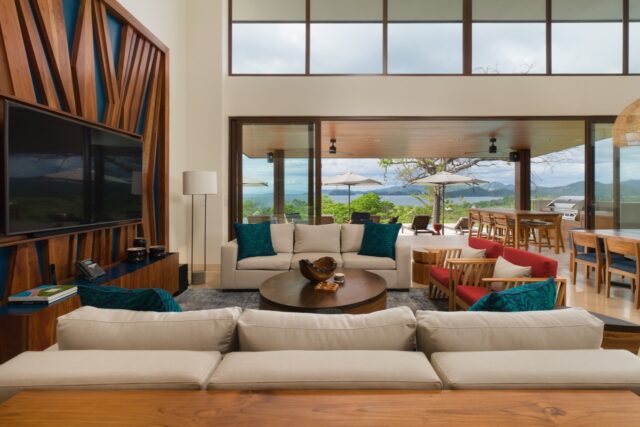
The three new impossibly chic W Residence Treehouses, each designed by architect Ronald Zürcher, blend seamlessly into the tropical rainforest locale, incorporating elements of Costa Rican culture, with the guanacaste tree serving as a key point of inspiration. Natural woods and local materials, including marble from Nicoya, are featured throughout the four-bedroom, four-full bathroom homes, with infinity-edge lap pools and stellar views from each area looking out onto the ocean in the near distance. There are also 27 forest-view Laurel Residential lots within the Reserva Conchal, a luxury retreat founded in 1996, awaiting development. Homes start at $4.3 million.
Residents enjoy such world-class amenities as an 18-hole premier golf course, tennis courts, a fitness center, and an exclusive beach club that provides water sports equipment (kayaks and stand-up paddleboards) and boasts a delightful beachfront restaurant offering indoor/outdoor dining.
During a visit to the on-site orchard, Hortalizas Najui (najui means “woman” in the now-extinct local Chorotega language), started in 2019, team members Claudia Moreno, Filenia Espinoza and Carolina Canales took time out from tending to the herb and vegetable gardens to tell guests about the women’s collective that runs the garden and how the opportunity has given them a new lease on life—first jobs for many of the members—their pride in their work showing through their beaming smiles. They grow some 3,200 plants a month in the greenhouse, including sweet peppers, lettuces, lemongrass, spearmint, chocolate cherry tomatoes, tarragon, and other herbs utilized in the resort’s “orchard to the table” cuisine. Even the cocktails get a lift from the orchard, with edible herbs and flowers for garnishes and celery for bloody marys.
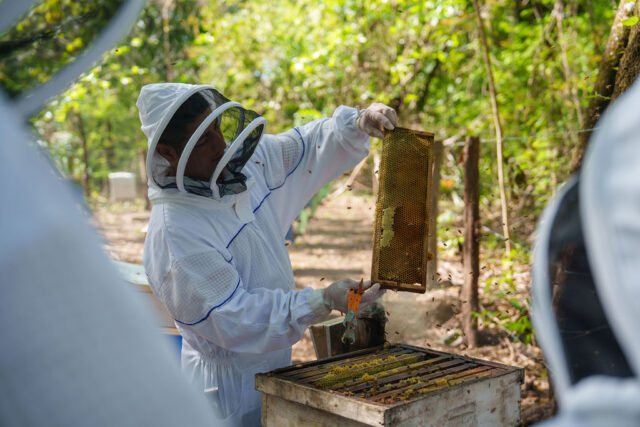
The apiary on premises, under the management of Mieles Nicoyanas, includes 25 hives, housing 4 million bees, which make the Blue Zones honey available for sale here, as well as the beeswax candles and varnish for the properties’ furnishings. Not only do these busy bees pollinate the nearby flora, but the apiary also functions as an educational site to raise awareness about the environment and local ecosystem.
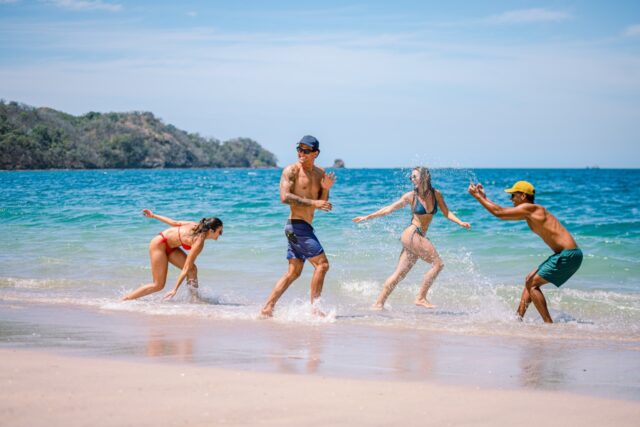
The Conchal Mixed National Wildlife Refuge, created in 2009 with a total of nearly 40 hectares (nearly 100 acres), also serves as a place for environmental education, research and ecotourism. On an early morning walk through the estuary, guided by Wildlife Refuge Coordinator Santiago Diaz, our group didn’t spot any sloths or monkeys that live in the forest, but we did see some incredible bird specimens, like the native bright-yellow-chested gartered trogon bird.
The commitment to education and sustainability here is impressive, with solar panel-generated energy, on-site recycling and waste-recovery facilities, two wastewater treatment plants and the first seawater desalination plant in Costa Rica, providing an alternative water source for the resort’s operations.
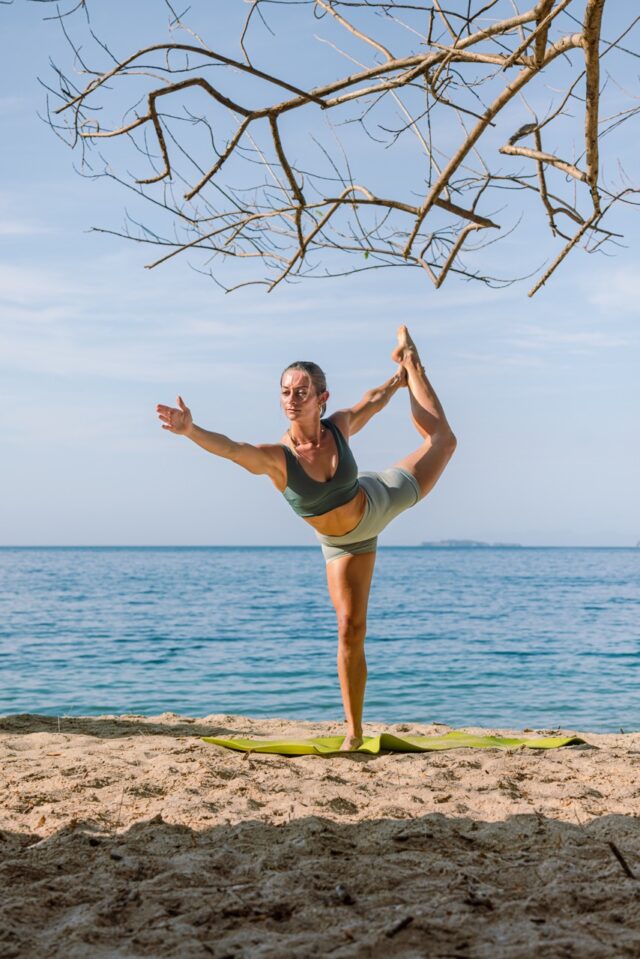
Sustainable, fabulous and longevity-focused for the health of the residents and the health of the planet, this is as good of a backup plan as I can envision. Residents and guests alike can rest easy knowing their impact on the local environment is at a minimum—and the impact of the local environment on them is at a maximum: Blue zone living is associated with increased longevity and reduced risk of chronic disease. Residents here are twice as likely to live into their 90s in good health than in the States. All of that in a stable democracy with access to excellent, lower-cost health care. Pura vida for the win. W Costa Rica; Reserva Conchal Sustainable Community





